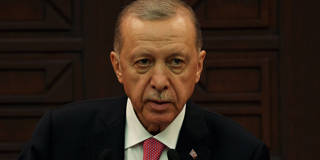Turkey’s central bank has finally ended its era of easy monetary policy, which had reflected President Recep Tayyip Erdoğan’s unorthodox theory that lower interest rates will reduce inflation. But policymakers still need to convince markets that Erdoğan’s New Economy Program will never be resurrected.
ISTANBUL – Despite facing his greatest electoral challenge in more than two decades in power, Turkish President Recep Tayyip Erdoğan won another five-year term in a run-off vote in May, while his Justice and Development Party (AKP) and its allies maintained their parliamentary majority. The contest was closely watched in part because the outcome would shape the direction of the country’s troubled economy.

ISTANBUL – Despite facing his greatest electoral challenge in more than two decades in power, Turkish President Recep Tayyip Erdoğan won another five-year term in a run-off vote in May, while his Justice and Development Party (AKP) and its allies maintained their parliamentary majority. The contest was closely watched in part because the outcome would shape the direction of the country’s troubled economy.